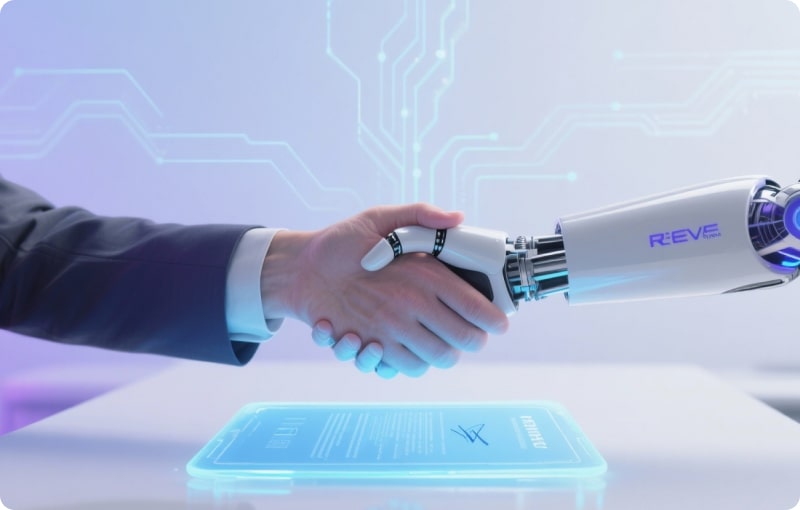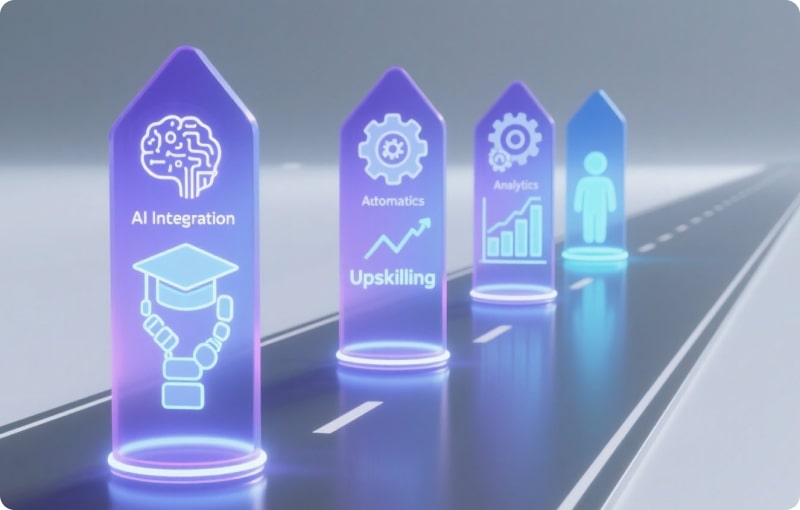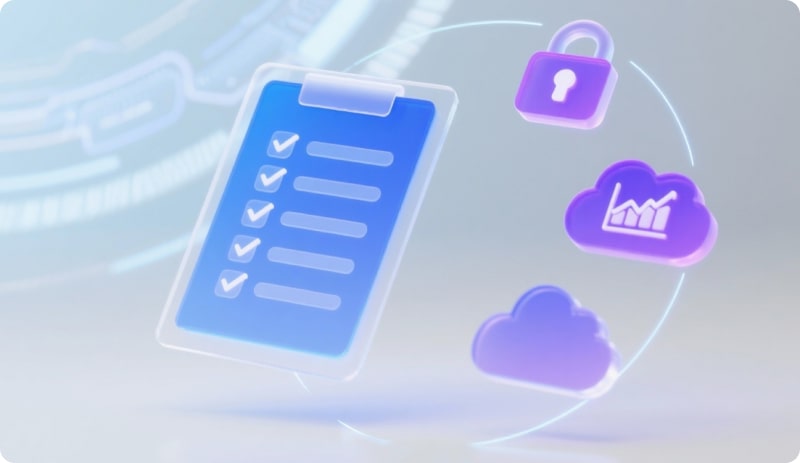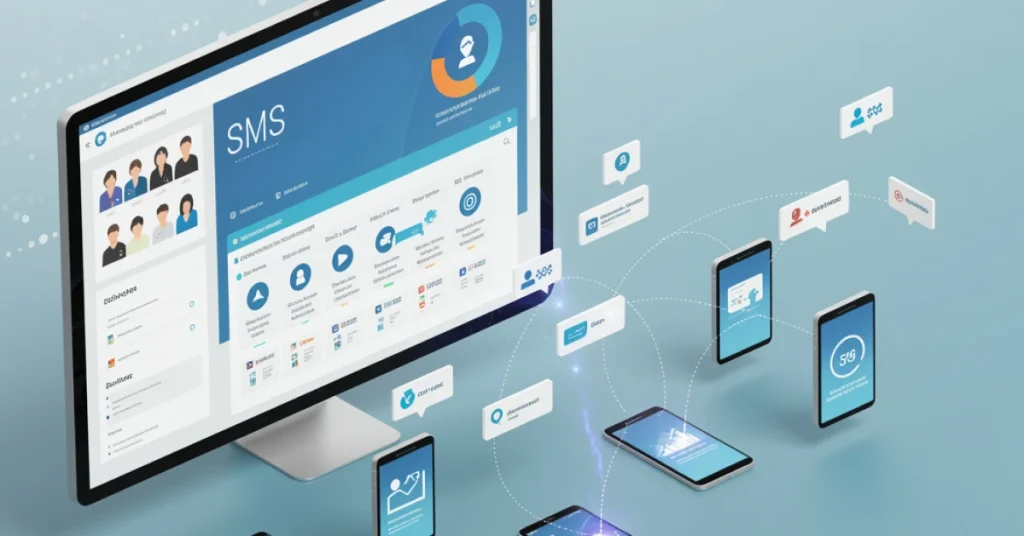AI in Outsourcing: How It’s Redefining the Future of IT Services
- October 31, 2025
- 13 Mins Read
- Listen

Artificial Intelligence (AI) is no longer a futuristic concept; it’s the driving force redefining how global businesses operate, innovate, and grow. From predictive analytics to process automation and intelligent decision-making, AI is reshaping nearly every function of the IT outsourcing ecosystem.
The global IT services outsourcing market, valued at USD 744.6 billion in 2024, is expected to reach USD 1.2 trillion by 2030 (Grand View Research). What’s fueling this expansion isn’t just cost optimization anymore; it’s AI-driven transformation. Enterprises are increasingly partnering with outsourcing vendors that bring automation, analytics, and AI expertise to the table.
Through this post, I’ll walk you through how AI is changing the IT outsourcing landscape, the key trends shaping this evolution, the opportunities it creates for service providers, along with a practical roadmap you can use whether you’re buying AI outsourcing services or selling them.
Why AI Is Becoming the Backbone of IT Outsourcing
Beyond just cost savings, outsourcing has always offered companies access to global talent and expanded delivery capacity. But with the integration of AI, this model is evolving from a simple workforce extension to intelligent scaling and automation. AI enables outsourcing vendors to automate routine and repetitive processes, from IT maintenance and customer support to complex data analysis and even code generation. This doesn’t replace human expertise; rather enhances it.
The impact of AI on the outsourcing industry is evident: it’s helping providers upgrade their workforce, rethink old-school service contracts, and focus on delivering real outcomes instead of just charging for hours worked.
And the timing couldn’t be better. According to Grand View Research, the global AI market is expected to surge from USD 279 billion in 2024 to USD 3.5 trillion by 2033, growing at a CAGR of over 31%. Source
Top AI-Driven Outsourcing Trends in the IT Industry

AI is changing the way IT outsourcing companies work, from handling customer support to writing code or managing projects. Tasks that once took hours are now being completed in minutes with the help of smart automation tools.
Interestingly, a recent Deloitte survey found that about 83% of executives are already leveraging AI as part of their outsourced services, and another 20% are actively developing strategies to manage these digital workers. Source
Let’s explore some of the key AI-driven trends shaping the IT outsourcing industry today.
1. AI-Powered Software Development and Testing
Software engineering has visibly adopted AI tools in immense ways. AI assistants like GitHub Copilot, ChatGPT, and Amazon CodeWhisperer help developers write, review, and debug code faster, thus speeding up the coding job. Furthermore, AI-based testing platforms such as Testim, Functionize, and Mabl now automate regression and functional tests, reducing manual QA effort. This level of assistance enables outsourcing companies to deliver projects faster, reduce human errors, and lower the service costs for clients.
2. Intelligent Project Management and Predictive Analytics
AI has revolutionized the whole project management cycle, i.e., how outsourcing teams plan, track, and deliver IT projects. Predictive analytics tools, like Forecast, analyze historical project data to forecast delays, estimate workloads, and manage risks in real time. From identifying potential bottlenecks before they occur, resource utilization patterns, and timeline deviations, predictive analytics helps project managers make proactive decisions, saving them from reactive corrections.
3. Hyperautomation in IT Operations
Don’t know what hyperautomation is? Well, it’s the combination of AI, RPA (Robotic Process Automation), and machine learning, and it’s taking IT operations to a whole new level. The AI-powered bots are increasingly handling tasks like ticket categorization, network monitoring, incident management, and log analysis, and a lot more. By automatically identifying and resolving repetitive IT issues, these bots save time for outsourcing companies, so they can focus on other high-value tasks.
4. AI in Telecom Outsourcing
AI is helping telecom companies automate network monitoring, predict outages, and improve customer service through intelligent chatbots and analytics. Outsourcing partners offering telecom AI services can deliver smarter, more proactive operations. AI is also redefining customer support in telecom. Intelligent chatbots and virtual assistants can now handle routine queries like balance checks, plan upgrades, or outage reports.
Moreover, outsourcing vendors that specialize in AI-driven analytics help telecom operators extract actionable insights from massive volumes of subscriber and usage data. These insights power better capacity planning, fraud detection, and targeted marketing campaigns.
5. ERP Management Through AI
As ERP ecosystems become more complex, enterprises are turning to AI-powered outsourcing providers to help them modernize, optimize, and future-proof these systems. AI brings a new level of intelligence to ERP. For instance, predictive analytics can forecast demand or inventory shortages before they happen. AI-driven automation can streamline repetitive workflows like invoice approvals, data entry, and financial reconciliations.
Outsourcing partners skilled in AI-enabled ERP integration, such as REVE, are increasingly in demand. They help businesses embed AI into existing platforms, ensuring smoother automation and smarter insights without disrupting ongoing operations.
6. Cybersecurity as an AI-Enabled Service
Another fast-growing area that integrates AI is cybersecurity. Security is a top priority in outsourcing, especially within critical business functions. AI-powered cybersecurity systems are stepping in as a frontline defence – they learn from new data to strengthen defenses faster than human analysts. These systems perform important security functions, including detecting anomalies and potential breaches in real time, analyzing millions of logs to identify hidden threats, and predicting attacks based on behavioral patterns.
Certainly, this makes outsourced IT security operations more secure, resilient, and trustworthy for clients across various sectors that deal with sensitive data, such as banking and healthcare.
7. Cloud Optimization through AI
AI is also playing a key role in optimizing cloud infrastructure management for outsourcing companies. AI-based solutions like Azure Advisor analyze usage patterns, recommend optimal resource allocation, and predict peak usage times. This also helps in automating cost control and reducing unnecessary spending for many outsourcing clients.
8. Smarter Helpdesk and IT Support Automation
The AI in the customer service market is expected to reach USD 1.63 billion by 2030, growing at ~22.9% CAGR. Source
Customer and employee IT support, which is a major outsourcing segment, is not untouched by AI. Gone are those long ticket queues as AI-powered virtual agents now interact with clients, having capabilities of understanding intent, context, and even emotion, without human intervention. These chatbots can resolve most of the level 1 queries and automatically escalate complex issues to the right support agents, providing them with full context, boosting resolution rates, and improving customer experience.
9. AI-Powered Customization and Client-Centric Delivery
Modern IT outsourcing isn’t one-size-fits-all anymore. AI enables providers to personalize solutions for each client’s specific needs, whether it’s performance optimization, data governance, or automation maturity. Through deep learning and analytics, outsourcing firms can analyze a client’s IT landscape and suggest custom solutions that align with their business goals.
Modern-day clients expect more than just an ‘8-week delivery promise’. They want intelligence, agility, transparency, and more transparent delivery with clear, measurable outcomes. AI simply enables all of this. The numbers back this up. According to CX research, 77% of CX leaders expect their outsourcing vendors to have AI capabilities.
Opportunities for IT Outsourcing Companies

A lot has been said about AI replacing jobs or disrupting industries. However, there’s another side of the story which is still not well-known – AI brings massive opportunities for outsourcing companies, helping them evolve like never before.
Let’s look at where forward-thinking outsourcing companies can truly thrive in the AI age.
1. Upskilling
For several years, outsourcing has been a volume game – “X developers for Y dollars” or “X dollars for Y working hours”. However, that model is no longer workable because of changing client expectations.
Today, AI opens new doors – it enables outsourcing companies to not just offer manpower, rather position themselves as solution partners. By embedding AI into their service offerings – be it for software testing, automated documentation, or intelligent monitoring- AI helps outsourcing companies to stand out from traditional ones.
2. New Service Lines
The rise of AI has unlocked an entirely new series of outsourcing services that really didn’t exist a few years ago. Outsourcing companies can expand into highly demanded services, such as AI-powered testing, predictive maintenance, data analytics, cybersecurity, and cloud automation, by offering these new capabilities.
3. Efficiency
AI’s value extends beyond client benefits; it’s a powerful tool that transforms an outsourcing business’s internal operations, too. By automating workflows like resource allocation, project tracking, or code reviews, outsourcing firms can significantly cut operational overhead.
The message is clear: AI can simply be a multiplier to those outsourcing companies that don’t just use it, but build their strategy around it.
Strategic Roadmap: How Outsourcing Providers Can Thrive

Today, providers need to move beyond simply completing the job and instead become experts in using AI to drive success for their clients. Here’s a plan for how to make that necessary shift:
1. Reimagine Your Business Model
Start with a mindset that your outsourcing model can no longer rely solely on manpower and time-based billing. Integrate AI into every layer of your operations, be it project delivery, client management, or performance reporting.
2. Create an AI Adoption Roadmap
Don’t try to “do AI” everywhere at once. Start small with pilot projects in high-impact areas, like automating QA testing, improving helpdesk response times, or analyzing customer feedback. Track the measurable benefits: faster delivery, reduced errors, or cost savings. Once proven, scale those AI-driven initiatives across teams and clients.
3. Upskill & Reskill Talent
Use AI to upgrade your workforce. Investing in AI literacy, data ethics, and machine learning training will future-proof your people. Even basic familiarity with AI workflows, automation platforms, and prompt engineering can turn traditional roles into augmented experts.
4. Focus on Niche Expertise
Identify industries where AI adoption is accelerating, such as BFSI, healthcare, retail, or logistics, and build strong domain expertise. In regulated sectors, clients are ready to pay a premium for specialized outsourcing partners who combine AI know-how with domain expertise to address their specific data, regulatory, and customer challenges.
5. Promote Transparent AI Use
Transparency builds trust, and trust is the foundation of a successful business. Today, enterprises grow more cautious about data privacy and algorithmic bias. Communicate your ethical AI practices openly – explain how AI is used, how data is handled, and how results are validated. Being upfront about your AI governance can turn compliance into a competitive advantage.
Vendor Checklist: What to Ask an AI Outsourcing Partner

If you are evaluating outsourcing vendors for your next business project and are overwhelmed with everyone claiming to “use AI”, then here’s a checklist of essential questions you should be asking before signing an outsourcing contract.
1. What AI Tools do you use?
When you ask this question to your outsourcing vendors, you may get vague answers. You should make sure to get the actual names of the AI tools leveraged by the vendor. This will help you get a better understanding of their adaptability and execution level.
2. How do you manage data?
Ask your vendor how they handle, secure, and own sensitive data. Do they comply with GDPR, HIPAA, or ISO 27001 standards? Are their datasets anonymized or encrypted? Most importantly, ask who owns the model outputs and trained models once the engagement ends.
3. Have you deployed AI in Production?
Ask your vendor for concrete case studies or references where they’ve deployed AI at scale. It’s easy to run a proof-of-concept demo that looks great on paper. However, the real test is how many of those AI pilots have been deployed in production environments. Getting an answer to this question helps in separating vendors who are genuinely capable from those still in the experimentation phase.
4. How frequently are your models retrained?
AI models operate on data, which changes over time. This makes it important to retrain AI models over fixed periods of time, such as monthly, quarterly, or yearly. Ask your outsourcing vendor about which tools they use to monitor model drift and detect bias. A vendor with automated pipelines for model retraining, data validation, and fairness auditing reflects ethical and reliable practice.
5. How do you integrate AI workflows with existing systems?
Smooth integration minimizes disruption and ensures faster time-to-value. You should inquire about how your vendor’s AI systems will fit into your existing IT infrastructure, CRM, ERP, or DevOps pipelines. An experienced vendor should be able to give you a satisfactory answer with an explanation about APIs, middleware, and compatibility with your preferred tech stack.
6. What are your exit and transition plans if the engagement ends?
No partnership lasts forever, which is why you should ask about data portability and model handover procedures. If you terminate the contract, will you receive full access to all datasets, trained models, and documentation? Are there any dependencies that might make migration difficult?
Remember that the best vendors design systems with portability in mind, ensuring that your AI investments remain yours, even if you switch providers.
Expert Take: Human Intelligence Will Always Be the Differentiator
Amidst the AI wave, one fact remains unshakable – Machines cannot replicate human intelligence. Even the most advanced AI systems depend on human oversight to ensure fairness, ethics, and alignment with real-world goals. With that said, the future of outsourcing with AI appears to be a strong partnership between automation and people. The most successful companies will be those that can fuse AI’s precision with human adaptability.
At REVE outsourcing, our client relationships have always been built on trust, communication, and reliability. We understand that AI can enhance those experiences, but it cannot replace the human connection behind them. That’s why we focus on human + AI synergy – blending intelligent automation with skilled experts.
Let’s turn complexity into clarity. Connect with REVE to explore how intelligent outsourcing can power your next phase of growth.
Frequently Asked Questions: AI in Outsourcing
What are the benefits of integrating AI into outsourcing?
AI boosts speed, accuracy, and scalability, allowing providers to handle complex tasks efficiently. It also enables personalized service delivery and data-based decision-making.
How does REVE Outsourcing use AI in its services?
REVE integrates AI into its software development, analytics, and automation services, helping global clients improve efficiency, speed, and decision-making while reducing operational costs.
Can small businesses benefit from AI outsourcing?
Absolutely. AI outsourcing helps startups access top-tier AI tools and expertise without heavy investments, making cutting-edge innovation affordable.
How does AI improve customer experience in outsourcing?
AI chatbots and analytics tools enable 24/7 support, instant query resolution, and personalized communication, improving customer satisfaction and retention rates.
What industries are most impacted by AI-driven outsourcing?
Finance, healthcare, e-commerce, telecom, and IT services are leading adopters, using AI for automation, fraud detection, predictive analytics, and customer engagement.

























